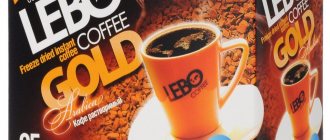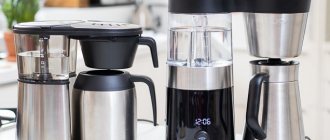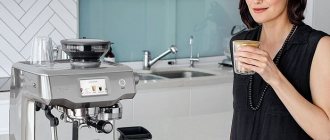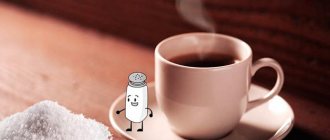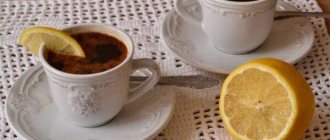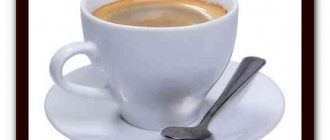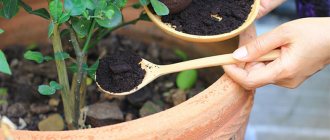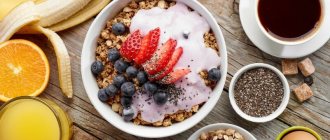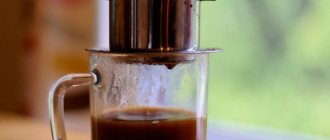The taste of coffee is familiar to everyone, but for true connoisseurs there are many shades and nuances. Moreover, most experts agree that the main and most important ingredient is water. Coffee consists almost entirely of it. Today, coffee machines, which are found in many apartments, offices, commercial or office premises, have become very popular.
In addition, it is very important for catering establishments, cafes and coffee shops to ensure the best quality of the drink. The same type of coffee can be used, and the brewing technology is strictly followed. Therefore, to obtain optimal results, all that remains is to choose the highest quality water.
Features and specifics of coffee
Coffee is one of the most popular drinks, maintaining its popularity for hundreds of years. Various preparation technologies have been developed, and certain types of grains are used. One of the main advantages is the presence of a large amount of caffeine, which increases energy, performance, and tones the body.
Expert opinion
Borodina Galina Valerievna
Despite the apparent simplicity of preparation, the drink requires compliance with certain rules and a technological sequence of actions.
There are different types of coffee:
- espresso;
- ristretto;
- Americano;
- cappuccino;
- latte;
- raf coffee;
- flat white;
- mocaccino;
- macchiato;
- glasse;
- con panna;
- frappe;
- cold brew;
- Viennese coffee;
- American coffee;
- Turkish coffee;
- Irish coffee;
- Vietnamese coffee, etc.
Such a variety of types is due to some differences in preparation technology, amount of water, additions of milk and sugar, and brewing temperature. The serving size and the density of the drink also differ. Given the wide variety of coffee bean varieties, it’s easy to imagine the number of flavor options.
Water makes up about 95% of the total drink. It is obvious that its quality and composition have a significant impact on the taste and aroma of coffee. Any professional barista pays great attention to such an important ingredient. It is impossible to achieve full compliance with high standards using water from random sources or from a tap. Therefore, it is necessary to have a fairly complete understanding of the current requirements and rules for choosing water.
It is not enough to have knowledge about the quality and composition of the liquid. To get the desired result, it is more important to know where you can get water with the required parameters. In addition to the opportunity to get the highest quality drink, you can increase the service life of coffee machines and other equipment.
Water quality requirements
As a rule, various guidelines state the need to use only clean, free of impurities water. This is a rather vague definition, since it does not provide any criteria for evaluating the composition. Guided by these requirements, you should use a distilled liquid that is as close as possible to the chemical formula.
However, if you try to make coffee from such water, the result will be extremely unsuccessful. There will be no richness, many flavor nuances will simply disappear. It is not for nothing that spring water or water from mountain rivers is considered the most suitable in composition. It has a certain amount of mineral impurities, but is devoid of suspended matter or chlorine components.
There is a special organization dedicated to improving the quality of coffee. This is SCA, Specialty Coffee Association. It has been operating since 2002 and already unites hundreds of communities, professional baristas and other specialists working with all types of coffee. It is this organization that takes the initiative in researching and determining the optimal composition and quality of water.
The following table will allow you to more clearly imagine the requirements for the composition and degree of purification of the liquid:
| Options | Permissible limits (min/max values) | Optimal value |
| Color, degree of transparency | Complete absence of any color casts or haze | |
| Smell | Not allowed | |
| Presence of chlorine | Only complete absence | |
| General mineralization | From 75 to 250 g/l | 150 g/l |
| Hardness (calcium level) | 1-5 grains. (17-85 mg/l) | 4 grains (68 mg/l) |
| Alkalinity level | 38-42 mg/l | 40 mg/l |
| pH | 6,5-7,5 | 7 |
| Amount of sodium | 9-11 mg/l | 10 mg/l |
However, memorized values of all these parameters will not help much in choosing quality water. By themselves, they only show the content of certain elements, without giving a qualitative assessment of the liquid as a whole.
Let's consider the most important parameters and their influence:
- pH . This is the ratio of acid and alkali dissolved in water. Coffee gives a slight sourness, which can either be enhanced or neutralized. Both options distort the taste, making it too provocative. Or too flat. Therefore, the recommended value is neutral;
- The hardness of the water determines the rate at which the coffee machine becomes overgrown with lime deposits . At first glance, the smaller it is, the better. However, in practice it turns out that a certain calcium content gives its own flavor;
- total mineralization (Total Dissolved Solids, TDS) . This indicator gives an idea of how much suspended or dissolved particles are already present in the water. The higher the initial mineralization, the less possibility of accepting additional components. To obtain a high-quality drink, you must strive for 18-22 percent absorption (extraction) of the contents of the coffee tablet. If the water is highly mineralized, this value cannot be achieved;
- too low mineralization of water is also unacceptable . This deprives the coffee of multiple flavors, making it bland and flat.
The requirements for water quality are quite stringent, so you have to look for sources to obtain the most balanced composition.
Choosing water for coffee machines
Tap water can only be used if it goes through a serious purification system.
Tap water is definitely not suitable for coffee machines. Firstly, its composition is different in each region, due to the presence of a certain mineralization of the source, the amount of disinfectant components, chlorine, etc. It must be taken into account that the technological process of water treatment can never be done without chlorination.
This allows you to kill harmful bacteria and avoid the spread of infections. This means that the addition of all additives is quite justified from a sanitary and epidemiological point of view, but such water is not suitable for use in coffee machines.
Sometimes there are recommendations to use household filters to purify tap water. This is advice of dubious quality. A conventional filter is capable of retaining mechanical particles and suspensions. He is not able to cope with dissolved components.
Water that has undergone this treatment will be freed from small particles, but the content of chlorine in it will not change. The same applies to pH levels and other parameters. You can try to achieve quality using a reverse osmosis filter.
This is an installation that forces water through a special membrane with holes, the size of which allows only water molecules to pass through and does not allow larger molecules of organic compounds to pass through. However, such installations are expensive and are available only to serious organizations.
It is necessary to take into account one more feature of the operation of coffee machines. They don't bring water to a boil. This means that pathogenic bacteria that may be present in tap water remain viable. Any penetration of infection into the system from water intake systems creates a danger of its spread among the population.
The best choice is to use bottled water. It undergoes comprehensive training, is certified and has a specific composition. It is indicated on the label; the user just needs to look at the list of components and compare it with the reference version.
Expert opinion
Borodina Galina Valerievna
There are many types of bottled water. You cannot use any of them; you must carefully study the composition and cut off unsuitable brands.
Is filtered water okay?
Unfortunately, the water filters installed in coffee machines do not handle very “hard” water. Over time, the salts and minerals of “hard” water still form sediment, which reduces the water pressure when making coffee and causes noise when the machine operates.
Household filter jugs work to remove odors and tastes from tap water, but do not adequately soften the water. They also do not provide rational characteristics of water mineralization.
That is why in elite coffee shops, in addition to installing a filter in the water hopper, they also connect a reverse osmosis filter to the coffee machine. But they are not cheap, so not everyone can afford to connect a filter system with reverse osmosis to their coffee machine at home.
Bottled water - types and features of choice
Experts consider the most suitable option for coffee machines to be bottled water.
Bottled water has a stable composition and undergoes complete disinfection and quality control. Despite the fact that the composition of water varies somewhat in each region, all existing brands can be used with the maximum guarantee of a positive result.
However, the variety of types of bottled water can confuse the unprepared user.
It is necessary to immediately cut off unsuitable varieties:
- with a mineralization level over 250 mg/l;
- with additives of fluorine, iodine and other trace elements;
- the label must bear the SCAA and SCAE markings (indicating international certification of the product).
Experts conditionally divide commercially available water into 4 groups:
- The most effective varieties that give the highest quality results. Coffee brewed with water from these brands received the highest ratings from users and professionals. This group includes Bon Aqua, Aqua Minerale, Edelweiss, Nestlé, Chernogolovskaya.
- More expensive brands Evian and Vitel. Despite the high price, the taste of coffee is lower than when using water from group 1.
- The quality of the coffee here is even lower. The stamps included in group 3 are Arkhyz, Holy Source, Senezhskaya.
- This group is represented by one brand - Shishkin Les. The quality of the finished drink is the most unpretentious.
Using this simple rating, you can get optimal results on all types of coffee beans.
What kind of water do you use for your coffee machine?
BottledFiltered
Experiment: TDS and taste
We tested several brands of water to confirm the theory that lower TDS benefits coffee. To do this, we checked the actual mineralization of all samples and organoleptically assessed the coffee they produced.
All samples were brewed in V60 according to the same recipe:
- 15 g coffee / medium grind
- 270 g water / 93°C
- Pour 50 ml of water in a circular motion from the center to the edge of the filter
- Stir the coffee with a spoon
- Pour in the remaining 220 ml of water in a circular motion.
- Easily swing the funnel with your hands, thereby removing coffee from the walls of the filter
- Total cooking time: 2.15 – 2.45 seconds
| № | Brand of water | Actual mineralization, mg/l | Total mineralization on the label, mg/l | Mg cations | Ca cations |
| 1 | Kalinov spring | 292 | <700 | 15 | 40 |
| 2 | Shishkin forest | 340 | <700 | 5 | 20 |
| 3 | Senezhskaya | 220 | 300-700 | 150 | 150 |
| 4 | Every day | 157 | <700 | 50 | 90 |
| 5 | Bon Aqua 2l | 156 | 50-500 | <50 | 80 |
| 6 | Bon Aqua 5l | 168 | 50-500 | <50 | 80 |
| 7 | VkusVill | 179 | 200-400 | 10-40 | 40-70 |
| 8 | Kozelskaya | 81 | <1000 | 65 | 130 |
| 9 | SPA Reine | 26 | 33 | 17 | 45 |
| 10 | Noringa* | 126 | 100-200 | 5-15 | 23-40 |
| 11 | Elbrus | 127 | 150-800 | <25 | <100 |
| 12 | Aqua Minerale | 177 | 50-500 | <20 | <30 |
* Since the experiment, Noringa has already been removed from sale.
Let's sum it up
The quality of coffee and the condition of the equipment largely depend on the degree of purification and mineral composition of the water. The use of ordinary tap water is excluded, since it contains chlorine. It spoils the taste of any type of coffee beans and gives an unpleasant taste and smell. In addition, the composition of the liquid in each region is different, determined by the hydrogeological conditions of the area.
The solution to the problem may be the use of cleaning systems. These are expensive installations that require frequent filter changes. The more complex and expensive the model, the higher the degree of water purification. However, you can solve the issue in a simpler and more affordable way - use bottled water. It has already undergone all operations to remove suspended matter, disinfection and other processing procedures. The use of such water guarantees the high quality of the drink and the safety of kitchen equipment.
Water Chernogolovskaya 19 liters
379 rub.
Why do you drink coffee with a glass of water? General tips for making coffee.
Water after coffee is a long-standing tradition among coffee gourmets. Alternating coffee and water allows you to prolong the aftertaste when drinking a coffee drink. If a tonic drink is served after eating the main meal, a glass of water is served in order to activate the perception of taste buds, for example, after eating dishes with added spices and preservatives.
Many people are interested in how to drink coffee with water correctly? If coffee is served as the main drink at the table, then you should alternate between drinking coffee and clean water. This allows you to enhance the taste of the drink.
Why do people drink water after coffee? To prevent drowsiness, the risk of high blood pressure and to maintain oral hygiene. In many establishments, coffee is served to the table along with cool, clean water. A portion of fresh water is drunk before drinking a coffee drink to get rid of the unpleasant aftertaste after eating food. Drinking coffee with water is also beneficial - clean water neutralizes alkaloids and enhances the invigorating effect.
